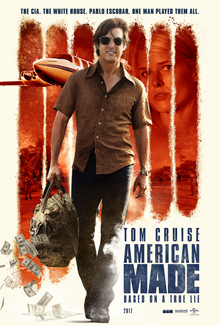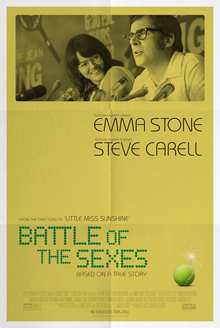Directed by Panos Cosmatos
Written by Panos Cosmatos (story and screenplay) & Aaron Stewart-Ahn (screenplay)
Cast: Nicolas Cage, Andrea Riseborough, Linus Roache, Bill Duke, Richard Brake, Ned Dennehy, Olwen Fouere, Hayley Saywell
Soundtrack: Jóhann Jóhannsson
Wow, so this one really took me by surprise.
I saw the trailer and figured, “Okay, crazy horror movie with Nic Cage, definitely at least worth checking out.”
What I was not expecting was, quite frankly, one of the best films of the year so far.
Right off the bat, I’ll say it’s a lot to take in (like, A LOT), which will undoubtedly turn some people off; not so much in the story, but in all the other trappings such as lighting, music, occasional animation cutaways, the gore (though in some ways that was less than I expected), and a largely deliberate pace.
The thing is though, it’s just so dang artful, and as dark and crazy as everything is, it’s not just a totally raw feel-bad experience like Hostel or some other torture porn nonsense; there’s a heart and soul somewhere in there through all the muck.
As far as performances go, it’s the best thing Nic Cage has done in about fifteen, maybe even twenty years. He doesn’t have to deliver too much in terms of dialogue but he definitely gives life to a mostly subdued character who could’ve just been a robot in the hands of another actor.
However, the real showstopper is Linus Roache as the villainous Jeremiah Sand, who most people will know as Bruce Wayne’s daddy in Batman Begins and/or ADA Michael Cutter on Law & Order. I won’t give away too much, you can get a decent glimpse from the trailer anyway, but let’s just say he lets it all hang out in a big way.
As I said before, the music plays an integral role as well, and the score from the late Jóhann Jóhannsson is on par with (if not outright superior to) any of his work for Denis Villeneuve, or Hans Zimmer’s score for Blade Runner 2049.
All told, I have to hand it to writer/director Panos Cosmatos (son of the late action director extraordinaire George P. Cosmatos) for bringing to life a colorful mashup of Dario Argento, “Satanic Panic”, classic Ridley Scott, and a bit of Tarantino for good measure. I’ve not yet seen his previous film, Beyond the Black Rainbow, but it’s definitely on my watch list now.
Oh, and how could I forget a wonderful cameo from Bill Duke, who will always be the best thing?
Rating: ★★★★½
Original Release Date: October 29, 1982
Written and Directed by Larry Cohen
Cast: Michael Moriarty, Candy Clark, David Carradine, Richard Roundtree, James Dixon, Malachy McCourt, Fred J. Scollay, Peter Hock, Ron Cey, Mary Louise Weller
Soundtrack: Robert O. Ragland
You go into this movie thinking you’re going to see a monster chomp down on a bunch of people, and, to be fair, that does happen, but what you don’t bargain for is Michael Moriarty consuming the scenery at a rate that would make Pac-Man blush.
Not that that’s a bad thing, because his performance is arguably the best aspect of the movie, but it’ll take you by surprise if you’re not ready for it.
Really though, the reason we’re even talking about this film is as part of an unofficial series on the life and works of Larry Cohen (that’ll have at least one more installment; hopefully more).
Shot in eighteen days, entirely on location in the City of New York, and notorious for causing a front-page-worthy panic on account of men firing fully-automatic weapons atop the Chrysler Building, Q is far from a masterpiece, but it is what you might call a fun romp.
Essentially an exploitation version of a 1950s Ray Harryhausen picture (but somehow with even less budget), the titular Q is the ancient Aztec god Quetzalcoatl, a giant serpent-bird mysteriously brought back to existence, feasting on New Yorkers blinded by the mid-day sun, and taking up residence in Manhattan’s most beautiful skyscraper.
In addition to Michael Moriarty, the movie features competent turns from David Carradine and Richard Roundtree as a pair of detectives, Candy Clark as Moriarty’s distressed wife, and long-time Cohen good-luck charm James Dixon as another policeman.
Again, Q is a good time (especially with the right crowd) and a great case-study in low-budget film-making, but overall and in terms of the Cohen canon I didn’t find it quite as interesting as God Told Me To.
Still fun though.
Rating: ★★★☆☆









